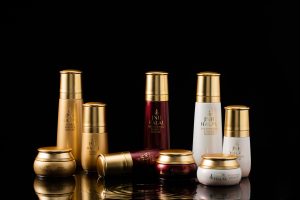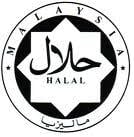A DinarStandard interview with Dr James Noh, Director-General of the Korea Institute of Halal Industry
Are Halal cosmetics threatened by natural and organic?
We have seen over the past year that cosmetics companies are interested in getting certification. We started a certification body last year, and are now trying to get some customers. We also have an agent here for the Vegan Society of UK, who are very active in certifying Korean vegan cosmetics. So we definitely see a trend for vegan products here. This can very naturally be linked to certification of halal cosmetics as more and more, Muslim consumers are interested in vegan cosmetics. Even if cosmetics are not halal certified, but vegan, they buy them assuming they have halal ingredients. Vegan and Halal are very similar, so I believe that as vegan cosmetics grow, halal will also grow.
How many Cosmetic companies were certified this past year?

Hard to get the number. Recently I feel that more cosmetics manufacturers operate halal dedicated lines for overseas producers. Countries like Malaysia, and Malaysian clients ask them to produce halal products for them which is increasing the number of local companies producing halal cosmetics. That means when the company gets an order from a Korean cosmetic seller, asking them to produce halal cosmetics for them, this will enable them to get two clients, the local client for SE Asian market, and also clients from Malaysia, that order based on OEM production. I believe we will be seeing more halal cosmetics in the near future.
Is Indonesia’s compulsory certification a driver?
Korean companies are keen on this Presidential decree of Indonesia for halal certification, but up until now we still expect another change in the regulation to come out from the Religious Ministry with new details for the regulation. Once it is finalised we will look at the regulation in order to be in line with Indonesia. We export a large amount to Indonesia, so it will have an effect on our exports if we are not prepared for the new Halal requirements, which could affect us badly. Many Korean exporters are quite keen on regulation.
Does Korea update their Halal regulations as Malaysia is doing this year?
We have not received the standard yet from Malaysia. I am interested in what is in the updated standard, so am waiting for it to come out. The UAE is also pushing their own initiative for halal certification, but there is no uniform standard. This complicates the situation right now.
Until now no Korean halal CB has been recognized by ESMA in the UAE. By the Korea Accreditation Board signing an MOU with ESMA soon Korea will have halal CBs accredited by the ESMA scheme. This will enable South Korea to secure opportunities to export to Middle East market their products with a local halal logo recognized by ESMA.
Do you produce Halal pharmaceuticals?
![]() We have some already halal certified, since 2015, so are already there. The interesting new development is that Daewoong, a big manufacturer, have their own JV in Indonesia, in Infion, and will produce biopharmaceuticals for the halal market. They are also in process of getting halal certification, so this is big news in Korea in terms of halal certified pharmaceuticals.
We have some already halal certified, since 2015, so are already there. The interesting new development is that Daewoong, a big manufacturer, have their own JV in Indonesia, in Infion, and will produce biopharmaceuticals for the halal market. They are also in process of getting halal certification, so this is big news in Korea in terms of halal certified pharmaceuticals.
Chong Kun Dang, also a big manufacturer, said they had completed a factory in Indonesia, and also have a JV there. They received halal certification from MUI in 2018. These are both big developments.
Jilgyungyi, quite a new company that is the market leader in Korea, got their feminine cleansing products halal certified by MUI last year, and are penetrating the halal market, as they are seeing a big demand from SE Asian countries.
Other Opportunities?
Se Jung Shipping is applying for halal certification of its trucking service from KMF, a halal certification body in S. Korea. If Se Jung’s service is halal certified by KMF, it becomes the first halal certified logistic provider in S. Korea. At the initial stage Se Jung targets halal food and cosmetics exporters to Malaysia for its halal trucking service. Se Jung has established a joint venture company in Malaysia with A-Transglobal, a halal logistic provider certified by JAKIM. Moreover, Se Jung shall cooperate with Malaysia Airlines, a halal air logistic provider certified by JAKIM. Se Jung’s halal logistic launch is expected to mark the beginning of halal supply chain buildup in S. Korea.
They are also developing an app for traceability as a big issue in the halal industry, especially in Malaysia. We want an app, because we know now that there will be big competition within Islamic countries like Malaysia, and UAE, for having a blockchain traceability system. Therefore this company would also like to have a halal supply chain management solution, led by blockchain. Things will start fully over next two years, but they have already begun this year.
Is it a totally a private initiative?
Yes it is, but they are also trying to get government support. Global supply chain management should have global support, from all the countries to help link them together.
Also, Korea’s First halal testing laboratory plans to open in August. KFRI(Korea Food Research Institute) shall become the first halal testing laboratory in Korea. Operated under the ISO 17025 standard and equipped with facilities such as real time PCR for haram checking, KFRI is planning to open the lab in early August this year after obtaining accreditation by KOLAS, a Korean accreditation body.
Is the government supporting the halal sector in any other way?
Yes, recently we have seen a very serious trade war between USA and China, and China is the largest market for Korea. The challenge is, as they are dependent on exports, the government is trying to find new markets, so are looking to SE Asia as an alternative to China. SE Asia requires halal as 40% of ASEAN is Muslim – so we see the market, and this is why government are trying to support industry to produce halal.
Will a Halal hub be set up in South Korea?
 Not now. But in May an MOU was signed with Halal Development Corporation of Malaysia, HDC, and they discussed the possibility to produce halal cosmetics in Malaysia. We have our own techniques, and quality, and they want Korean companies to invest in Malaysia, and use Korean technology. We will incorporate the ingredients of Malaysia, as Malaysia has a lot of good ingredients for cosmetics. Maybe we will cooperate to make halal cosmetics, and help to develop the new market. The CEO of HDC suggested this to me, so I am trying to find time for this opportunity, perhaps in the latter half of this year, to develop some projects.
Not now. But in May an MOU was signed with Halal Development Corporation of Malaysia, HDC, and they discussed the possibility to produce halal cosmetics in Malaysia. We have our own techniques, and quality, and they want Korean companies to invest in Malaysia, and use Korean technology. We will incorporate the ingredients of Malaysia, as Malaysia has a lot of good ingredients for cosmetics. Maybe we will cooperate to make halal cosmetics, and help to develop the new market. The CEO of HDC suggested this to me, so I am trying to find time for this opportunity, perhaps in the latter half of this year, to develop some projects.
Are you producing sustainable packaging?
In Korea, we are just beginning to be aware of this issue, but so far we can’t give any example of eco-friendly products. We are behind Europe on this point. We keep an eye on global trends, and the big players already do not use animal based ingredients.
Are there any new regulations?
We have a natural cosmetics certification, which was made last year by the Ministry Food and Drug Safety, to launch this programme. The government is pushing ahead with eco-friendly cosmetics and natural concept, by making related regulations.
Interview by Paul Cochrane, Editing by Salama Evans



